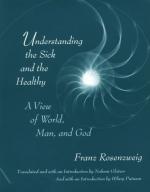|
This section contains 2,294 words (approx. 8 pages at 300 words per page) |

|
Hilary Putnam, after receiving a BA from Pennsylvania (1948) and a year spent at Harvard (1948–1949), studied at the University of California, Los Angeles, taking his doctorate in 1951 with a dissertation titled "The Concept of Probability: An Application to Finite Sequences." He taught at Northwestern (1952–1953), Princeton (1953–1961) and MIT (1961–1965), becoming Walter Beverly Pearson professor at Harvard in 1965. From 1995 to 2000, he served as Cogan University Professor there, becoming emeritus in 2000. He has been influential in most areas of philosophy, particularly in the philosophy of language, of logic, of mathematics, and of science.
Putnam is sometimes thought of as often changing his mind. (See, for example, the Dictionary of Philosophers' Names.) Sometimes he has. But in central respects he has held a single, though developing, position since the mid-1950s, a position that in some aspects resembles the later Ludwig Wittgenstein's. This entry sets out some constant central themes...
|
This section contains 2,294 words (approx. 8 pages at 300 words per page) |

|


